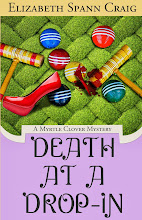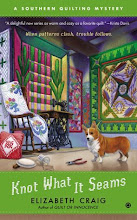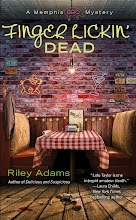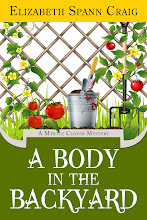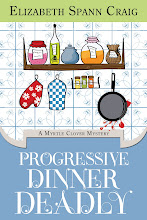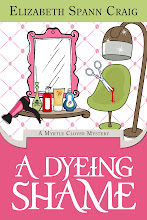 So I was at Costco, buying a couple of bottles of wine (great prices there, by the way), and went through the check-out line. I have long hair, so my face was shielded while I rifled through my massive pocketbook (see previous post) for my debit card. The guy doing checkout said, “$45.67. And…I’m gonna have to see some ID.” Well, my head just bobbed right up in surprise. And then he said, when he saw my face--I will never forget this--: “Oh. Never mind.”
So I was at Costco, buying a couple of bottles of wine (great prices there, by the way), and went through the check-out line. I have long hair, so my face was shielded while I rifled through my massive pocketbook (see previous post) for my debit card. The guy doing checkout said, “$45.67. And…I’m gonna have to see some ID.” Well, my head just bobbed right up in surprise. And then he said, when he saw my face--I will never forget this--: “Oh. Never mind.”
Let’s couple this episode with another one. This time I’m in the grocery store and I had just popped in for a couple of forgotten ingredients for what would pass for supper that night. I had some sour cream, some breadcrumbs, and maybe a container of chicken. So the bag boy bags them up prettily and says, “Do you need help to the car with that?”
Oh dear God, I thought. I look old and feeble! So I scampered to the department store and shopped in the Junior’s section for an inappropriate dress that will embarrass my children if I wear it out.
I will probably return this dress in a couple of days, because I no longer feel old. I realize that I was jumping to conclusions…at least with the bag boy. He probably had to ask everyone if they needed help. Maybe.
Mystery writers rely on their readers to jump to conclusions, too. One of Agatha Christie’s favorite tricks was “the unreliable witness.” She would introduce a character, usually a garrulous one, who would rattle off all kinds of nonsense. Then she would have them slip in some information that was a genuine clue. But because the reader has come to expect little of this character in terms of believability, the clue would frequently go unnoticed. A clue in plain sight.
I think other fiction writers could use the jumping-to-conclusions-ploy, too. Maybe you could have a character that the reader finds completely trustworthy because of some good behavior at the beginning of the book…but then they can become turncoats and start behaving badly. To Kill a Mockingbird had Boo Radley, who seemed like a terrifying person to the children in the book, but who ends up saving Scout from an attacker.
I love adding the element of surprise to a novel, and I think leading the reader astray by having them make assumptions is a great way to achieve surprise.











 Most writers are avid readers, even when we can’t find enough time to do the reading we’d like to. Since it’s a hot and summery Saturday (here in North Carolina, anyway), it seems like a great time to exchange book lists. I, for one, can definitely use some new reading material. Currently I’m enjoying Lisa Miscione’s Smoke. Right now it’s a missing person’s case, but I’ve got a feeling a body will be popping up on the scene soon.
Most writers are avid readers, even when we can’t find enough time to do the reading we’d like to. Since it’s a hot and summery Saturday (here in North Carolina, anyway), it seems like a great time to exchange book lists. I, for one, can definitely use some new reading material. Currently I’m enjoying Lisa Miscione’s Smoke. Right now it’s a missing person’s case, but I’ve got a feeling a body will be popping up on the scene soon.















